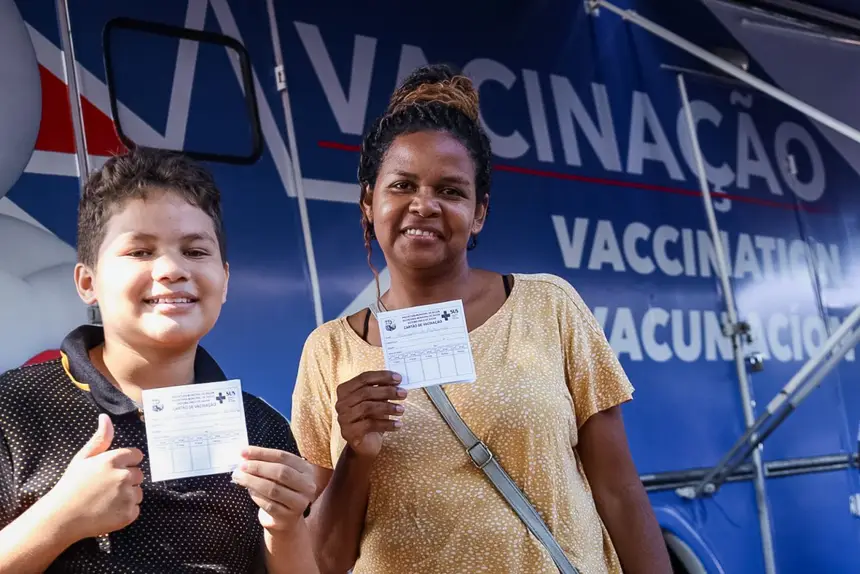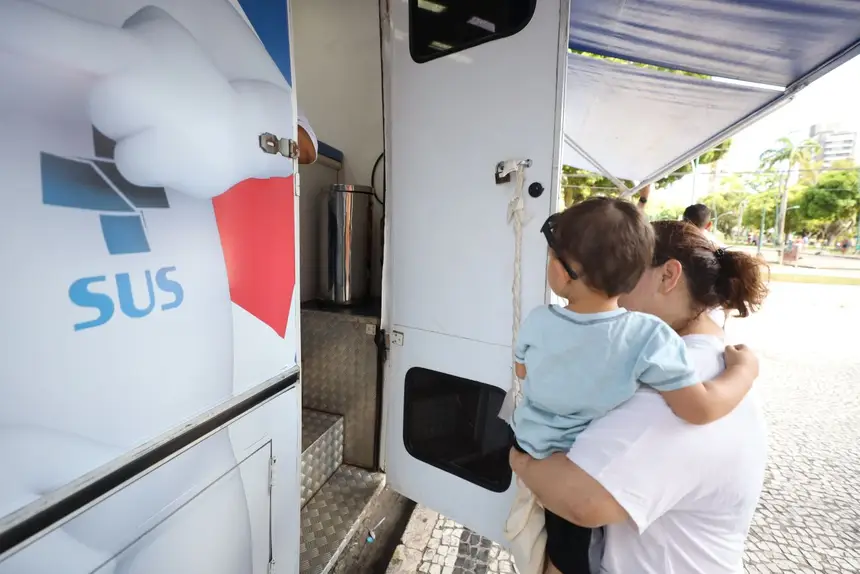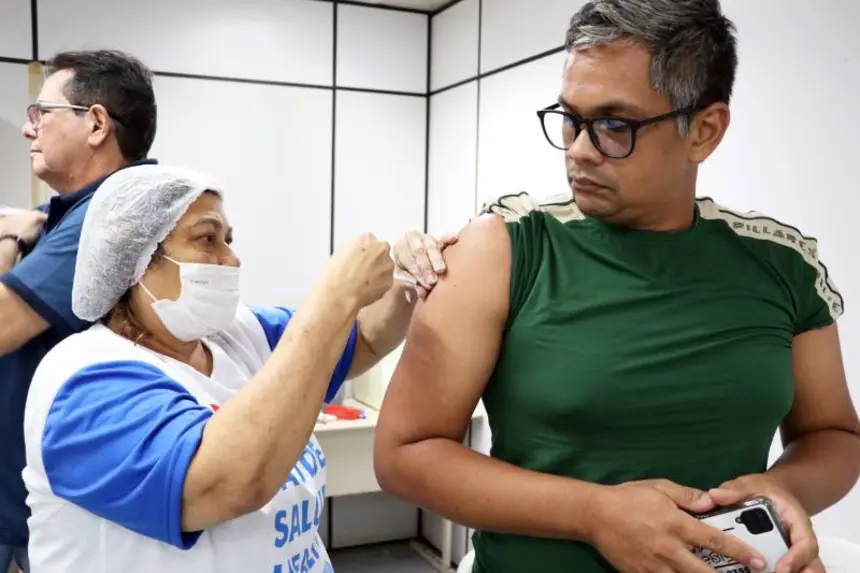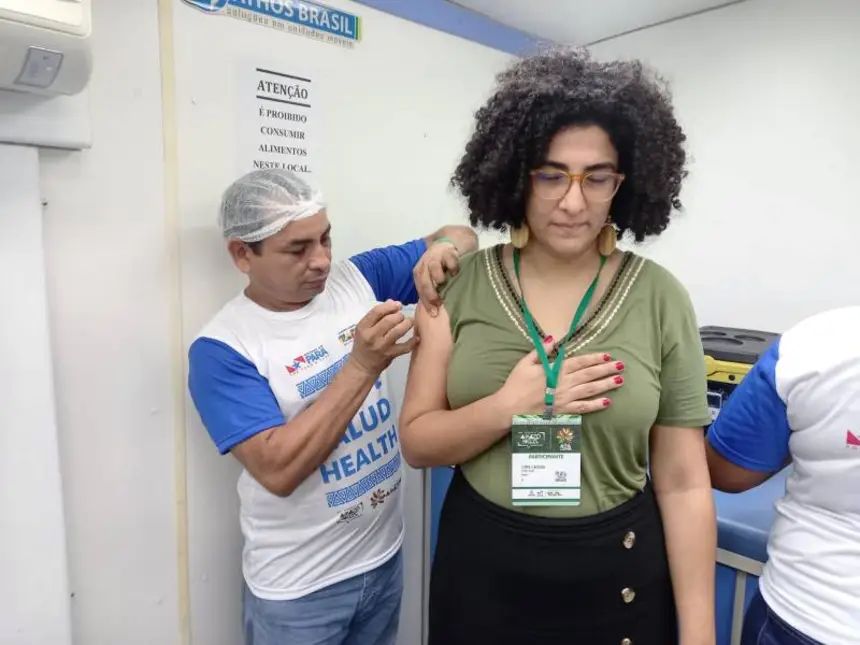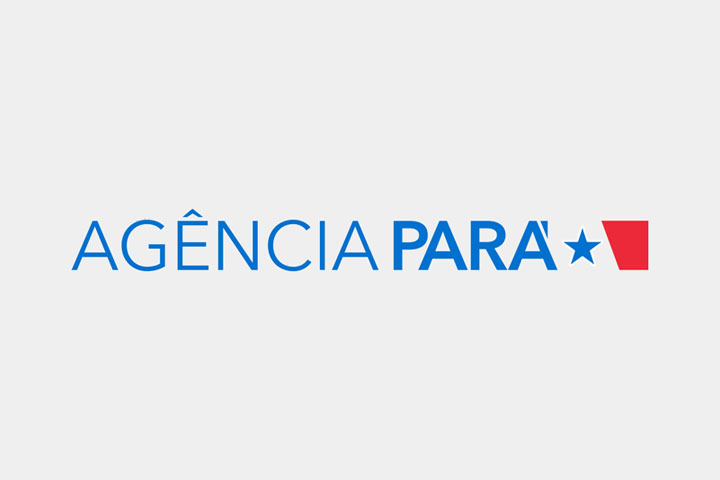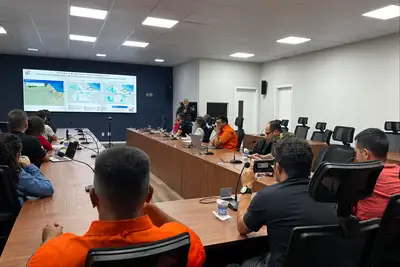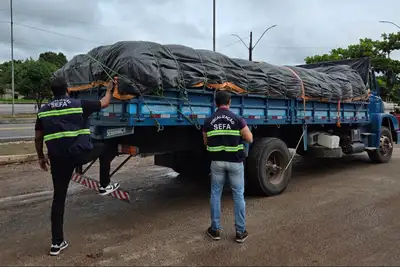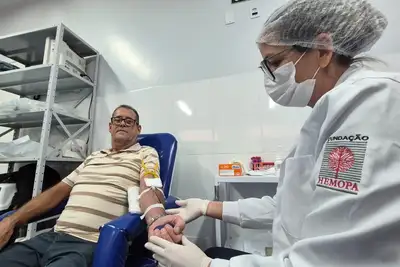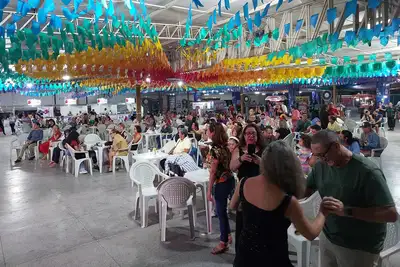National Vaccination Day reinforces the importance of keeping vaccination records updated in Pará
Sespa warns about low vaccination coverage and mobilizes the population to seek vaccination rooms in municipalities
On National Vaccination Day, celebrated this Friday (17), the State Department of Public Health of Pará (Sespa) reinforces the call to the population to keep their vaccination records up to date. Immunization is one of the most effective strategies in disease prevention and a right guaranteed to all Brazilians by the Unified Health System (SUS).
Despite advances in some indicators, Pará still presents vaccination coverage below the targets set by the Ministry of Health, especially among children under five years old. According to the most recent data, vaccination coverage is at 89% for BCG; 70% for Polio; 85% for Rotavirus; 84% for Pentavalent; 88% for Meningococcal C; 92% for 10-valent Pneumococcal and 89% for the Triple Viral (measles, mumps, and rubella).
Among other priority groups, the coverage of the Influenza vaccine is at 56% among the elderly and 82% among pregnant women.
Strategies to increase coverage
Sespa has adopted a series of actions to increase these rates. According to Jaíra Ataíde, state coordinator of Immunization, the work is carried out in coordination with the 144 municipalities in Pará. “We monitor vaccination rates and discuss the results in bipartite meetings, encouraging municipal secretariats to integrate Primary Care into the Immunization Program. This joint work is essential to identify areas of low coverage and plan more effective strategies,” she emphasized.
The coordinator emphasizes that, although some vaccines are close to the 90% target, community engagement is necessary. “Vaccination is a collective responsibility. We need everyone's commitment to ensure community protection, especially for the most vulnerable groups,” Jaíra reinforced.
Multivaccination Campaign and future actions
The Multivaccination Campaign is underway, aimed at updating the vaccination records of children and adolescents. The action is promoted by the National Immunization Program (PNI), in partnership with the Ministry of Health, the National Council of Health Secretaries (Conass), and the National Council of Municipal Health Secretaries (Conasems). The mobilization Day D will be this Saturday (18), with an expansion of vaccination points across the country.
In November, the State will also participate in the 3rd phase of vaccination against Influenza in the Northern Region states. During this period, municipalities receive a reinforcement of approximately 30% in monthly doses and are guided to carry out active search actions for unvaccinated individuals.
Microplanning to reach remote areas
To ensure access to immunization in hard-to-reach communities, Sespa has encouraged the use of microplanning, a strategy that allows mapping the most isolated regions and organizing human, financial, and logistical resources to reach the entire population.
“Microplanning is essential to ensure that no resident of Pará is left without access to immunization. Even in the most remote communities, SUS must provide vaccination protection,” stated Jaíra Ataíde.
The coordinator reinforces that all vaccines recommended by the national calendar are available free of charge in public vaccination rooms. “Vaccines save lives, especially those of children, the elderly, and people with low immunity. The vaccination card is the document that proves this protection and must always be kept updated,” she concluded.



